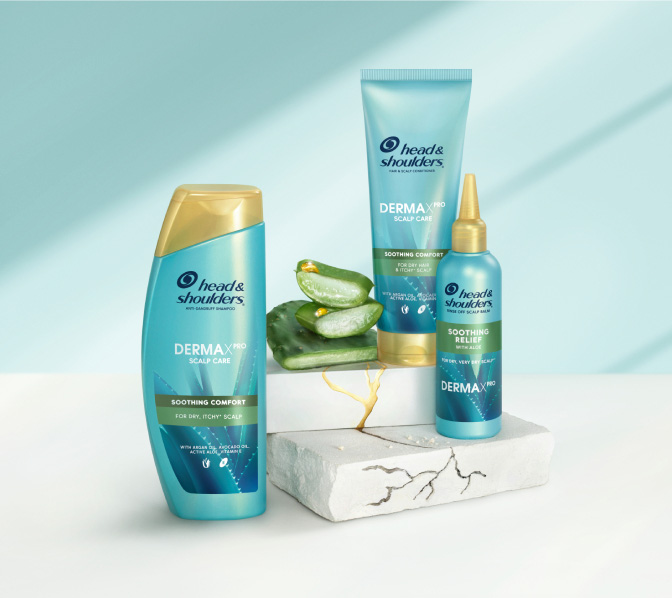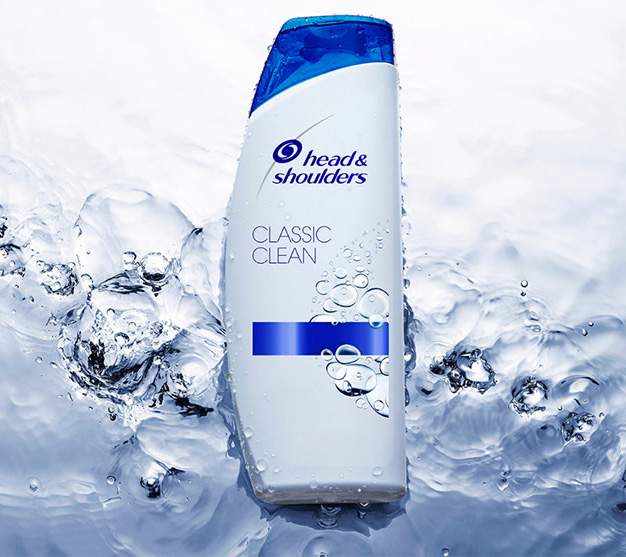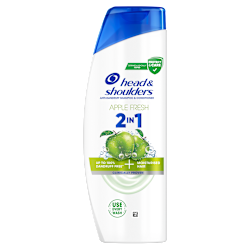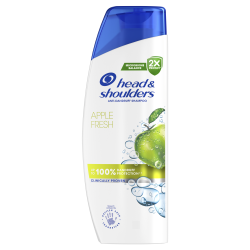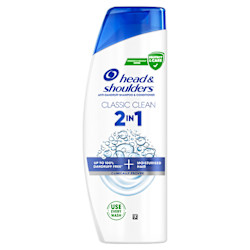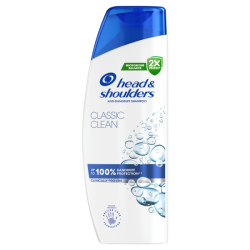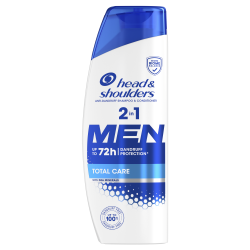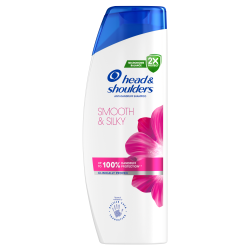Winter dandruff: prevent dandruff during cold days
The winter months can put your hair and scalp under a lot of stress. Preventing dandruff in winter starts with a good seasonal scalp and hair care routine. Don’t know how to get started? We can help.
SEVEN TIPS TO PREVENT DANDRUFF IN WINTER
If you’re worried that those flakes on your shoulders might not be snow, you’re not alone.
Lots of us suffer from dandruff in the winter. It’s nothing to worry about, but can be annoying, especially if you’re wearing a lot of dark wintry clothes and are concerned that people can see the flakes on your shoulders.
Winter is the classic party season when you want to look your best, whether that’s dressed up for an epic office Christmas party or wrapping up warm in a hat and scarf for the perfect snowy insta-shot. Winter dandruff is the ultimate unwelcome party guest, so let us take you through why it turns up and how to get rid of it.
You might be surprised to learn that winter dandruff isn’t caused by the cold. It is caused by a microbe present on all of our scalps and it’s there all year round, whatever the weather.
Follow our tips to stop your dandruff from flaring up when the temperature drops.
1. Choose a moisturizing anti-dandruff shampoo. You’ll want to look for two things in your winter dandruff shampoo: Firstly, make sure it’s actually effective against dandruff. You’ll be looking for an active ingredient which protects your scalp from the effects of the dandruff-causing microbe.
Aim for a clinically proven shampoo, as you’ll know the active ingredient works against dandruff. Skip shampoos and conditioners that don’t have dandruff actives, as they won’t do anything to treat the issue.
Second, look for shampoos and conditioners that promise moisturization to give your dry scalp a boost.
Your conditioner should also be designed for dandruff, as ordinary conditioners can wash dandruff-preventing ingredients from your shampoo off your scalp, leaving you less protected and more prone to dry scalp and hair damage.
To learn more about how to get the best out of your haircare products, check out our foolproof winter hair care routine.
2. Wash frequently – 3 times a week or more. The more you use your anti-dandruff shampoo, the greater the improvement to the skin on your scalp.
3. Don’t scratch. Scratching can damage your skin even more and make flakes more visible. Instead, press your fingers against your head if it’s really itchy. Prevention is better than a cure, so use dandruff shampoo to help fight itch before it starts.
4. Avoid things that can dry out your scalp like dry indoor air. Use a humidifier to help keep your scalp moisturized.
5. Keep it cool: very hot shower water can strip moisture from your skin, so turn the temperature down. 38 degrees (body temperature) is perfect.
6. Make sure your hats are breathable. While wearing a hat can help keep you warm, it’s important to choose one made of a breathable fabric that allows air to flow.
7. Keep using shampoo to treat your dandruff in winter, even after your flakes subside. Dandruff is a recurring condition, so if you’ve had it before you can get it again.
If dandruff is getting you down this winter, don’t fret. Our top tips will have you dashing through the snow again in no time.
WINTER CAN ALSO BE A NIGHTMARE FOR DRY SCALP
When winter draws in, a number of factors come into play that can put your scalp under stress. If you have dandruff, that’s a big worry and can lead to a winter flare-up. Turned the heat up? Be careful…
During winter, you probably spend most of your time inside warmed by central heating systems or electric heaters.
This tends to be a very dry heat. So, your skin – including that on your scalp – can start to dry out and feel much dryer than usual.
This lack of moisture can make your scalp feel tight, similar to the sensation of dry skin on the hands and face. And just like you’d moisturize them, you need to moisturize your scalp.
EASY ON THE BLOW DRYING
Blow dryers work overtime in the winter as we’re often told not to go out in the coldwith wet hair, and it won’t air-dry quite as easily in cold weather.
But be careful with it – using a hair dryer exposes your hair to intense heat and can dry out your scalp, adding to that feeling of tightness and dryness.
It’s the same with a hot shower. It might be a touch of luxury on a cold day, but very hot water can damage the scalp and strip it of moisture.
TURN OFF THE HEAT AND TAKE COLD SHOWERS? REALLY?
No. Just be sensible – for example, try not to use the highest heat setting on your hair dryer and keep the water temperature just above body temperature.
You’re going to have the heat on and even on a low setting, you’ll still need your hair dryer.
So, the best thing you can do for your scalp in winter is to give it that extra boost of moisture it needs to help prevent dry scalp from becoming a major problem.
WHAT CAUSES GREASY HAIR IN WINTER?
In really cold weather, you probably wear a woolly hat or keep your hood up to protect yourself from the elements.
But wrapping up warm can cause you to sweat more, making your hair appear oilier than usual. Waxy oils from your scalp become fluid at warmer temperatures and, with sweat, move further down your hair to make the roots look greasy.
It can also put you at risk of a dandruff flare-up, since the warmer, more humid microclimate created around your scalp is perfect for dandruff-causing microbes to thrive.
Fortunately, you don’t have to give up being warm; there’s no need to avoid wearing a hat in winter. Just choose a shampoo that will tackle grease and keep dandruff at bay, like Head & Shoulders Citrus Fresh Shampoo.
WASHING YOUR HAIR LESS
In winter, you may change your hair care habits and wash your hair less frequently.
It could just be that you’re not sweating like you do in summer or that you don’t want to spend ages waiting for it to dry in colder weather. Whatever your reason, it’s likely to make your hair look oilier.
That’s because your scalp is continually making oil, every hour of the day. Without shampoo, excess scalp oils accumulate, and so do the dirt, dust and particles trapped in there!
So, make sure you keep washing regularly and, when you do, use Head & Shoulders Apple Fresh clarifying shampoo – it’s our best one to tackle grease, gunk and dandruff flakes from the first wash.
6 WINTER HAIR CARE TIPS FOR HEALTHY HAIR AND SCALP
Here are some additional key tips and tricks to keep your hair and scalp healthy during winter.
1. PROTECT YOUR HAIR FROM THE ELEMENTS
Cold, wet winter weather can take its toll on your hair. The best way to protect your hair from the elements is to cover your head with a hat or scarf, but make sure that it’s not so tight that it will restrict the circulation in your scalp.
While it protects your hair, wearing a winter hat can also lead to a build-up of sweat that could sensitize the scalp.
So, make sure you use an anti-dandruff shampoo to stop dandruff in its tracks before flakes start to appear.
2. KEEP YOUR HAIR AND SCALP HYDRATED
If you’re dehydrated on the inside, it will show on the outside too so make sure you drink plenty of water to help keep your hair and scalp hydrated.
Using Head & Shoulders moisturizing shampoo moisturizes a dry scalp caused by winter weather and temperature fluctuations between indoors and outdoors.
3. AVOID OVER-STYLING YOUR HAIR
Limit your use of tools like hair dryers and curling irons, as the heat can dry out your hair and scalp, increasing the risk of damage.
Struggling with heat-damaged hair? Try Repair & Protect Shampoo.
4. HAVE YOUR HAIR TRIMMED REGULARLY
Whether you have long or short hair, winter weather can make the ends of your hair dry and brittle. Regular trims will keep your hair in good condition and reduce the chance of split ends.
5. WASH YOUR HAIR IN WARM OR COOL WATER
It might be tempting in the colder months to turn the water temperature up, but try to avoid washing your hair in very hot water - use warm or cool water to avoid damage.
Hot water can dry out your hair and damage the delicate skin on your scalp, which may be extra sensitive during the winter.
6. DON’T LEAVE HOME WITH WET HAIR
Take the extra time to blow-dry your hair or let it dry naturally before going outside. In cold weather your hair will take a long time to dry - and if your hair freezes, you risk breakage.

HOW TO AVOID AN ITCHY SCALP IN WINTER
Itchy scalp is a common response to sensitivity, and in winter there are lots of factors that can contribute to sensitivity. Here are our top tips for keeping warm in winter while protecting your scalp and avoiding that annoying itch.
Keep your hair protected in winter with Head & Shoulders
Regardless of the risk, most people can’t go through winter without heating, hairdryers and hats. So, it’s best to keep your protection up with an anti-dandruff shampoo that works to tackle itchy scalp*.


